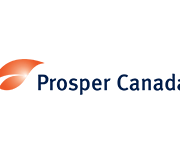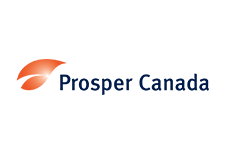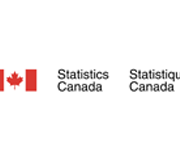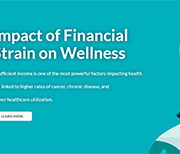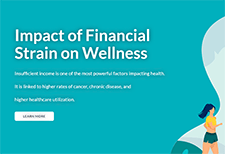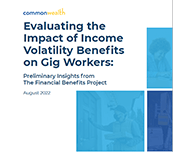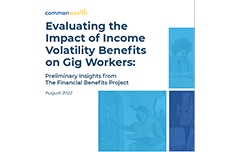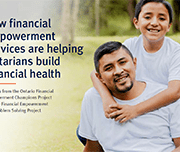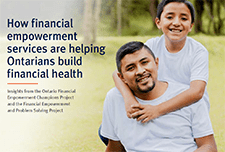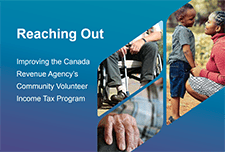Evaluating the impact of income volatility benefits on gig workers
Gig workers account for approximately 25 to 35% of the national workforce. When considering workers earning low to moderate incomes (LMI), these percentages are likely higher. Gig work provides reported advantages including flexibility, supplemental income, and independence. However, it also brings unique financial challenges such as complicated taxes, low and unpredictable wages, and difficulty accessing benefits. Due to these barriers to financial security, gig workers are often unable to build an emergency savings reserve. Commonwealth launched the Financial Benefits Project pre-pilot to further explore the financial needs of gig workers and to outline recommendations for employer benefits that reduce the impact of income volatility. In combination with schedule stability and predictable wages, income volatility benefits have the potential to help workers earning LMI manage from day to day, particularly given the reduction of COVID-19 supports. Across two cohorts, Commonwealth evaluated the impact of three interventions on financial hardships for 138 gig workers enrolled in the project. Participants were eligible for up to $1,000 in funds over a four-month period through weekly stipends, emergency grants, and emergency loans.
Empower U Financial Coaching
Financial empowerment consists of five complementary strategies including financial literacy and coaching; taxes and access to benefits; safe financial products; savings and asset building; and consumer protection. Empower U serves primarily as a financial literacy and coaching and savings and asset building intervention (although partners also contribute to the other interventions). The Sustainable Livelihood Model identifies five distinct sets of assets including personal, human, social, physical and financial. The Empower U program activities are grounded by two overarching philosophies: Financial Empowerment (as defined by Prosper Canada) and the Sustainable Livelihood Model (adapted by the Canadian Women’s Foundation, based on the work of the University of Sussex Institute for Development Studies). Focusing on financial literacy and coaching, Empower U has developed an individual financial coaching component to the overall program.
Start at the Beginning; a Person-Centered Design and Evaluation Framework for Policies to Boost Household Cashflow and Beyond
The financial hardships households faced in the midst of the pandemic reveals the scale of the precarity that millions of households were experiencing well before the crisis began. This highlights the urgency of the need to reimagine our system of benefits—both public and private—to effectively and equitably support households to recover from this pandemic and build security for the future. The Aspen Institute Financial Security Program (Aspen FSP)’s Benefits 21 initiative is dedicated to integrating and modernizing the American system of benefits to ensure all households have financial security and can live economically dignified lives.
Increasing education savings for families living on low incomes: An outcome harvest evaluation
Momentum is a changing-making organization located in Calgary, Alberta that works with people living on low incomes and partners in the community to create a thriving local economy for all. In 2008, Momentum launched the StartSmart program to support families living on low incomes to open Registered Education Savings Plans (RESPs) to access free government education savings incentives such as the Canada Learning Bond (CLB). Momentum subsequently partnered with community agencies and advocated for systems level change in order to reach more families and scale up CLB uptake. This report captures the collective efforts and outcomes of Momentum and community partners regarding increasing the Canada Learning Bond (CLB) uptake in Canada, as well as lessons learned. The report highlights include:
Evaluation of the Financial Empowerment and Problem Solving Project: Final Report
The Province of Ontario, through the former Ministry of Community and Social Services (now known as the Ministry of Children, Community and Social Services (MCCSS)) entered into a contract with Prosper Canada (PC) in 2015 to fund the Financial Empowerment and Problem Solving (FEPS) pilot project. The FEPS project provided individualized financial counselling to low income program participants along with educational workshops and free tax clinics. An evaluation of the FEPS pilot found that the project exhibited some promising practices and was well received by clients. Building off of the findings from pilot, in 2017 the former Ministry of Community and Social Services (MCSS) entered into a four-year agreement with PC to fund the program at four delivery sites.
Evaluation of the Financial Empowerment Champions Project: Final Report
The Ministry of Children, Community and Social Services (MCCSS) with funding from Ontario Works (OW) contracted with Prosper Canada (PC) in 2016 to launch the Financial Empowerment Champions (FECs) project. The project intends to build capacity (e.g., embed financial empowerment (FE) interventions) within communities and provide individualized FE services to individuals with low income. This final evaluation report includes the following lines of evidence: linked administrative data from MCCSS (Social Assistance Management System (SAMS)), FECs sites and PC; a pre-service and a postservice survey; and interviews with FECs staff, management and community partner organizations. The evaluation was initiated in August 2017 and the final data was collected in June 2020.
Reaching Out: Improving the Canada Revenue Agency’s Community Volunteer Income Tax Program
The position of Taxpayers’ Ombudsman (the Ombudsman) was created to support the government priorities of stronger democratic institutions, increased transparency within institutions, and fair treatment. As an independent and impartial officer, the Ombudsman handles complaints about the service of the Canada Revenue Agency (CRA). The Office of the Taxpayers’ Ombudsman hears first-hand the concerns of individuals, tax practitioners, and community support organizations. The Ombudsman visited with Community Volunteer Income Tax Program (CVITP) partner organizations, volunteers, and the Canada Revenue Agency’s (CRA) CVITP coordinators to learn more about the program and to understand the success stories and challenges they all experience. This report gives voice to what they have heard and provides recommendations on how to address the issues raised.
Perspectives on Evaluation in Financial Education: Landscape, Issues, and Studies
Financial education plays an important role in guiding individuals to achieve their financial goals and contribute to the economic well-being of society as a whole. While the examination on the effectiveness of financial education has many factors to consider, the National Endowment for Financial Education (NEFE) has taken measures to improve evaluation studies—both for the practitioner and the researcher. These actions include the conception of two documents what will assist in guiding practitioners and researchers in planning high-quality evaluations. The first is the Financial Education Evaluation Manual that is designed to support the evaluation of financial education programs by helping educators to understand the purpose and goals of evaluation, and to provide a basic understanding of the evaluation process. This information is designed for program managers, educators, and decision-makers, in traditional school settings or community-based programs/non-profit organizations, who are implementing financial education programs
An Evaluation of Financial Empowerment Centers Building People’s Financial Stability as a Public Service
This report provides information on the Financial Empowerment Center model, the people it served, the outcomes they achieved, the impact services had on nonprofit and city partners, and lessons learned for others looking to replicate or support this model. The evaluation was designed as a utilization-focused, foundational and exploratory study, aimed at creating an evaluation report that was useful to stakeholders. The report includes both qualitative and quantitative sources

